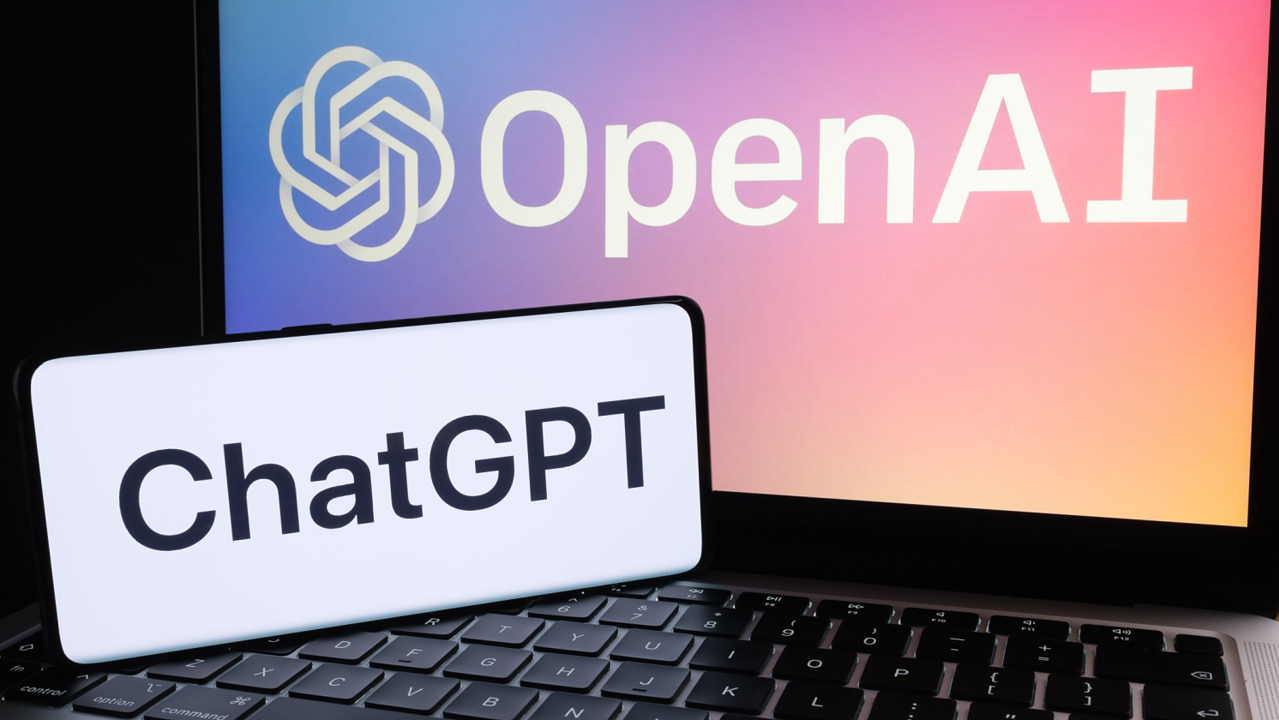FTC Investigation Into OpenAI's ChatGPT: What It Means

Table of Contents
The Nature of the FTC's Investigation into ChatGPT
The Federal Trade Commission (FTC), responsible for protecting consumers from unfair or deceptive business practices, has launched an investigation into OpenAI, the creator of ChatGPT. This reflects a growing awareness of the potential for harm posed by powerful AI models if not developed and deployed responsibly. The FTC's mandate extends to ensuring fair competition and preventing unfair or deceptive acts or practices, and this includes the burgeoning field of AI. The specific concerns driving the investigation include several key areas:
Data Privacy Concerns
ChatGPT, like other large language models, requires vast amounts of data for training and operation. This raises significant data privacy concerns. The FTC is likely investigating whether OpenAI has complied with regulations like the GDPR (General Data Protection Regulation) in Europe and the CCPA (California Consumer Privacy Act) in the US. Potential violations could include:
- Insufficient data security: Failure to adequately protect user data from breaches and unauthorized access.
- Lack of transparency: Insufficient disclosure to users about how their data is collected, used, and protected.
- Unlawful data collection: Collection of personal data without proper consent or for purposes beyond what was disclosed.
Addressing these concerns requires robust data protection measures and a commitment to user privacy that extends beyond simply complying with the letter of the law. A strong emphasis on AI ethics is crucial for navigating this complex landscape.
Bias and Discrimination in ChatGPT's Outputs
Another crucial aspect of the FTC investigation is the potential for algorithmic bias in ChatGPT's outputs. The model's training data may reflect existing societal biases, leading to discriminatory outcomes. This could manifest in several ways:
- Reinforcing harmful stereotypes: ChatGPT might perpetuate harmful stereotypes about race, gender, religion, or other protected characteristics.
- Unfair or discriminatory decision-making: If used in applications with real-world consequences (e.g., loan applications, hiring processes), biased outputs could lead to unfair treatment.
- Lack of diversity in training data: A lack of representation in the training data can amplify biases and lead to inaccurate or discriminatory predictions.
The FTC’s focus on AI fairness and the mitigation of discrimination in AI underscores the need for responsible AI development that prioritizes equity and inclusivity. The challenge lies in developing methods to identify and mitigate bias within complex AI systems.
Misinformation and the Spread of False Information
The ability of ChatGPT to generate human-quality text raises concerns about the spread of misinformation and disinformation. It can be used to create convincing but false narratives, deepfakes, and other forms of fake news, potentially impacting public trust and even causing real-world harm. The investigation may explore:
- OpenAI's measures to prevent the malicious use of ChatGPT for generating misinformation.
- The potential for ChatGPT to be used to amplify existing misinformation campaigns.
- The role of OpenAI in mitigating the negative impacts of ChatGPT-generated misinformation.
The investigation highlights the critical need for AI safety measures to prevent the misuse of powerful AI models for spreading harmful falsehoods.
Potential Outcomes of the FTC Investigation
The FTC Investigation into OpenAI's ChatGPT could have significant consequences. Potential outcomes include:
- Substantial FTC fines: OpenAI could face substantial financial penalties for violations of consumer protection laws.
- Mandated changes to practices: The FTC could require OpenAI to implement significant changes to its data handling practices, model training methods, and safety protocols.
- Legal precedents: The investigation could establish crucial legal precedents for the regulation of other AI models and companies.
This investigation could significantly impact the development and deployment of AI technologies, leading to greater AI regulation and a heightened focus on AI compliance.
The Broader Implications for the AI Industry
The FTC's investigation has far-reaching implications for the AI industry:
- Investor confidence: The investigation could impact investor confidence in AI companies, especially those developing large language models.
- Future AI development: It might lead to a more cautious approach to the development and deployment of future AI models, with a greater focus on safety and ethical considerations.
- Increased focus on responsible AI: The investigation is expected to fuel the ongoing debate surrounding responsible AI development, AI ethics, AI governance, and AI accountability.
This focus on responsible AI development is crucial for building trust and ensuring the beneficial use of this powerful technology.
What Consumers Should Know and How to Protect Themselves
While AI chatbots like ChatGPT offer exciting possibilities, users should be aware of potential risks:
- Be mindful of data privacy: Avoid sharing sensitive personal information with AI chatbots.
- Be critical of information: Treat information generated by AI chatbots with skepticism, verifying facts from reliable sources.
- Use strong passwords and security practices: Protect your online accounts to prevent unauthorized access.
For more information on AI safety tips and online privacy, consult resources like the FTC website and reputable cybersecurity organizations. Understanding your rights under data privacy laws like GDPR and CCPA is vital.
Conclusion: Understanding the FTC Investigation into OpenAI's ChatGPT
The FTC Investigation into OpenAI's ChatGPT marks a turning point in the regulation of AI. Its potential outcomes – from substantial fines to sweeping regulatory changes – will significantly impact OpenAI, the broader AI industry, and the way consumers interact with AI technologies. The investigation underscores the urgent need for responsible AI development and highlights the importance of prioritizing consumer protection and AI ethics. Stay informed about developments in the FTC's AI investigation and engage in discussions about OpenAI ChatGPT regulation and ChatGPT and AI accountability to shape the future of AI responsibly.

Featured Posts
-
 Virginia Giuffre Epstein Accuser Passes Away
Apr 28, 2025
Virginia Giuffre Epstein Accuser Passes Away
Apr 28, 2025 -
 Addressing Investor Concerns About High Stock Market Valuations Bof As Insight
Apr 28, 2025
Addressing Investor Concerns About High Stock Market Valuations Bof As Insight
Apr 28, 2025 -
 Cairo Hosts Hamas Delegation For Ceasefire Discussions Trump Weighs In
Apr 28, 2025
Cairo Hosts Hamas Delegation For Ceasefire Discussions Trump Weighs In
Apr 28, 2025 -
 Individual Investors Market Opportunity When Professionals Sell
Apr 28, 2025
Individual Investors Market Opportunity When Professionals Sell
Apr 28, 2025 -
 Rent Increase Slowdown Metro Vancouver Housing Market Update
Apr 28, 2025
Rent Increase Slowdown Metro Vancouver Housing Market Update
Apr 28, 2025
Latest Posts
-
 Starbucks Workers Reject Companys Pay Raise Offer
Apr 28, 2025
Starbucks Workers Reject Companys Pay Raise Offer
Apr 28, 2025 -
 Starbucks Union Rejects Companys Proposed Wage Increase
Apr 28, 2025
Starbucks Union Rejects Companys Proposed Wage Increase
Apr 28, 2025 -
 V Mware Pricing At And T Reports A Staggering 1050 Increase Proposed By Broadcom
Apr 28, 2025
V Mware Pricing At And T Reports A Staggering 1050 Increase Proposed By Broadcom
Apr 28, 2025 -
 1050 Price Hike At And Ts Concerns Over Broadcoms V Mware Deal
Apr 28, 2025
1050 Price Hike At And Ts Concerns Over Broadcoms V Mware Deal
Apr 28, 2025 -
 Sharp Increase In V Mware Costs At And T Reports 1050 Price Hike From Broadcom
Apr 28, 2025
Sharp Increase In V Mware Costs At And T Reports 1050 Price Hike From Broadcom
Apr 28, 2025
